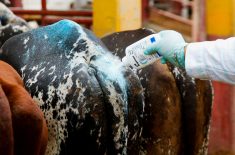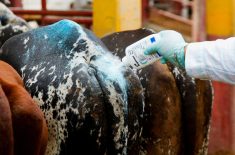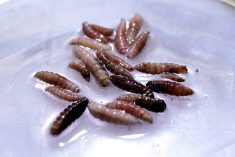Mexico City | Reuters — Mexican President Claudia Sheinbaum said that Mexican and U.S. officials were in contact over a case of New World screwworm (NWS) detected late last week that caused the U.S. to halt imports of Mexican cattle.
“We hope it will be resolved this week,” Sheinbaum said in a morning press conference, saying officials from U.S. Department of Agriculture were in permanent contact with Mexico’s Agriculture Minister Julio Berdegue.
Sheinbaum said controls were in place to prevent the contamination of livestock coming mainly from the southern border. “When cattle are transported they are tested and checked on,” she said, adding that the protocol had identified one case of New World screwworm.
Read Also

JBS profit falls amid still-challenging US market environment
JBS, the world’s largest meat company, reported a net profit fall in the third quarter in spite of a rise in global net sales amid a still-challenging beef market environment in the U.S., according to an earnings statement on Thursday.
On Tuesday, the New York-based Wildlife Conservation Society said evidence linked the resurgence of the screwworm – which often enters through open wounds and eats living flesh – to illegal cattle trafficking across Central America.
WCS’ Mesoamerica director Jeremy Radachowsky said in a statement that traffickers bypassing sanitary controls with often stressed, injured or undernourished livestock created “ideal conditions” for the transmission of diseases and parasites such as the screwworm.
“If the parasite establishes itself in Mexico, it could lead to decades of costly eradication efforts,” he said.
The case was identified in Chiapas state, where in the 1970s a factory developed millions of sterile male NWS flies in order to reduce wild populations. Female screwworms mate only once and do not reproduce if they do so with the sterile screwworms.
Mexico decreed the plant’s closure in 2013, ten years after Chiapas state was declared free of the pest.












